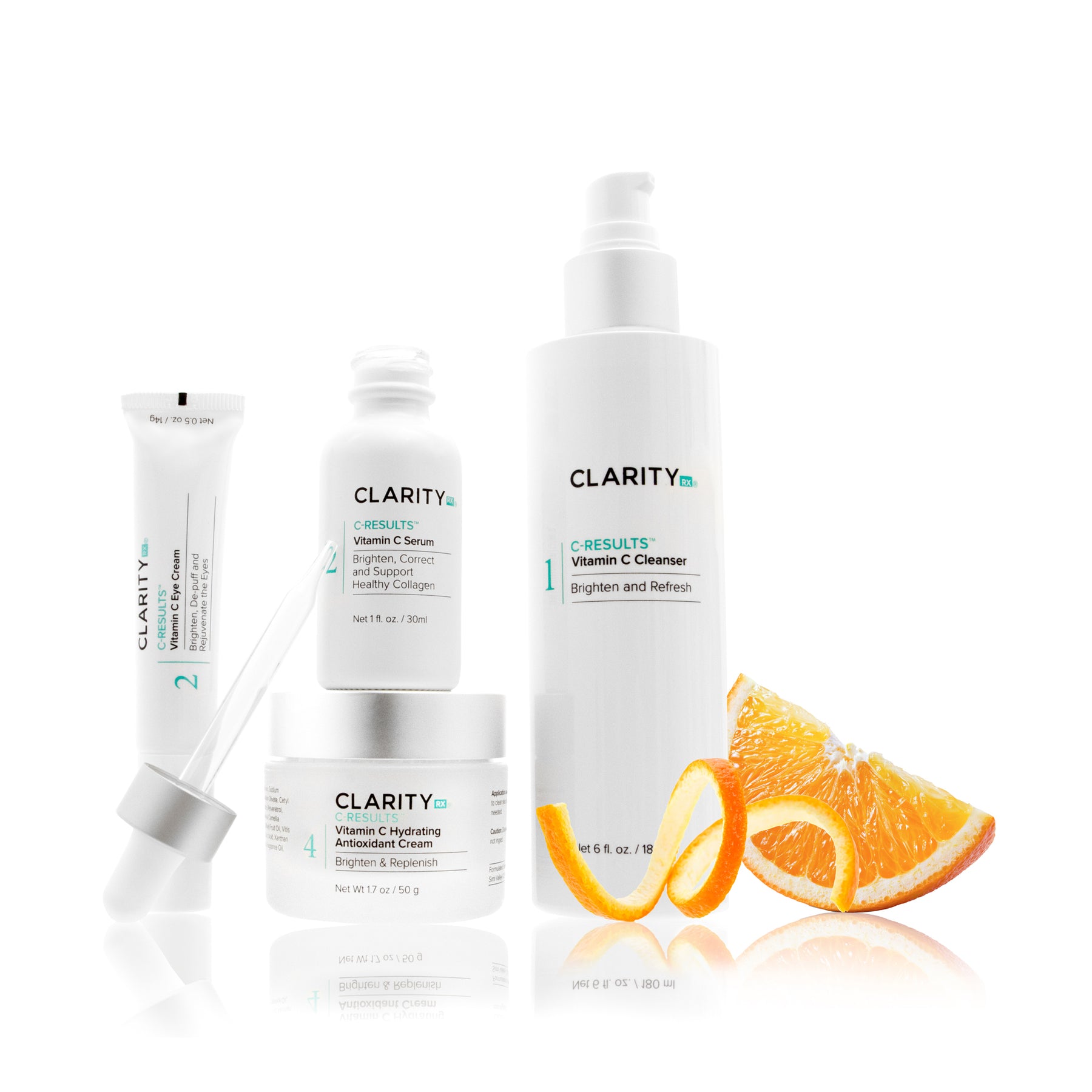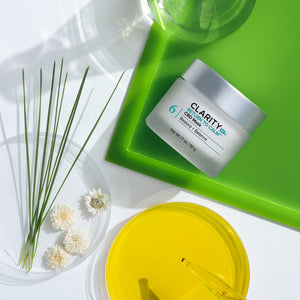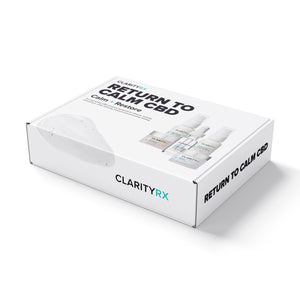
Vitamin C in Skincare: What is Vitamin C and How to Use It In Your Skincare Wellness Journey
Vitamin C is a natural, powerful antioxidant boasting a mound of benefits for all skin types. The potent ingredient is a key component of skincare wellness, helping to address virtually any concern, including discoloration or dark spots, addressing free radicals, and fine lines.
Vitamin C is primary for retaining the skin's appearance and wellness. The body is unable to synthesize this nutrient, primarily obtaining the vitamin through healthy fruit and vegetable consumption. A minimal portion of the nutrient finds its way to the skin, however.
In order to boost the concentration for optimum benefit, topical application via a skincare serum is essential. It's vital to recognize each vitamin C product is unique, with the formulation and your skin's specific requirements being factors in the results.
While everyone wants an optimum outcome from their skin's wellness regimen, each person has questions on how to achieve their objectives. Let's examine key questions to help make more informed and educated decisions.
Understanding The Fundamentals Of Vitamin C And How It Should Be Used
Regardless if you're only beginning your skincare wellness journey, you've likely been introduced to vitamin C serum boasting being a primary component of topical regimens.
The powerhouse nutrient touts the potential for assisting with "diminishing fine lines, helping to lighten dark spots, and neutralizing free radicals the skin is exposed to through UV radiation and pollution." Why should this topical solution be a key element in your skin's wellness routine? Let's learn.
What can vitamin C do for skin
Vitamin C has the potential to help virtually any skin type with many concerns when the serum is topically applied. Serums like vitamin C are often among the highest concentrations of an ingredient and are better able to penetrate the skin's surface.
It has a vast array of protectant properties, including anti-aging effects. Check these benefits.
The potential for assisting with diminishing the appearance of wrinkles and fine lines
The antioxidant boosts collagen production within the skin. Collagen is responsible for a tighter, more buoyant complexion diminishing the appearance of wrinkles or fine lines.
The potential for a brighter appearance on the skin
The skin's tone can even out with the possibility of a brilliant glow when consistent with care. The topical vitamin C serum inhibits melanin overproduction. Melanin is responsible for pigmentation in the skin but also in the eyes and hair.
However, in some instances, the substance will overproduce, resulting in "hyperpigmentation," creating discolorations or darkened areas in the skin. To protect against these negative side effects it is usually recommended to start with lower concentrations of vitamin C and work your way to higher concentrations.
The potential for protecting the skin
Vitamin C has the potential to fight free radicals that cause skin damage, including smoke, pollution, and UV rays, all of which are responsible for aging the skin. "The anti-inflammatory properties assist cells in finding the skin's injuries and encourage healing."
Are there side effects with vitamin C serum
Some individuals have exceptionally reactive or sensitive skin resulting in tingling or irritation with the possibility of itching and redness when the topical serum is applied.
Most dermatologists and beauty consultants always recommend to test a small patch of skin before committing to a product, especially when the serum touts an exceptional potency.
The process for testing consists of a mere dime-sized amount massaged into the inner arm to assess the results over a roughly two-day period. It's wise to start with a serum containing the least amount of vitamin C, a gentle product, and build-up to test tolerance.
What are essential elements to find on a Vitamin C label
As a rule, most people should remain at or below a 20 percent concentration of vitamin C. Adding more significant amounts won't necessarily mean greater benefit, but it could create irritation. For those with sensitive skin, a gentle formula at roughly 5 percent should be the starting point.
The serum should have vitamin C as one of the first ingredients listed. The nutrient comes in varied forms, but "L-ascorbic acid boasts of having more studies and is capable of starting to work straight away without the body needing to convert it in order to recognize it.
Other derivatives to pay attention to include "magnesium ascorbyl phosphate, tetrahexyldecyl ascorbate, ascorbyl palmitate retinyl ascorbate, and sodium ascorbyl phosphate. Antioxidant ingredients with the potential to help vitamin C to be more effective in protecting skin from harmful UV rays include "ferulic acid and vitamin E."
What should you not mix with vitamin C
When engaging in a skincare regimen including vitamin C, the serum is relatively safe in virtually any situation, but there are ingredients users don't want to mix with the acid.
That would include other products containing acids like "alpha-hydroxys (AHAs), including beta-hydroxy (BHAs) like glycolic and lactic acids plus salicylic acid. When you mix other acids, these can alter the pH of vitamin C, essentially making it less beneficial and having the potential for developing "angry skin."
In saying that, individuals who fight acne with benzoyl peroxide should not use it at the same time as vitamin C because it will oxidize the ingredient. When using benzoyl peroxide, include it as a bedtime routine and vitamin c as part of your morning wellness or, better alternate days.
When should you use vitamin C serum for optimum efficiency
There's no hard and fast rule on addressing your wellness regimen with vitamin C serum, but there are suggestions as to when it will offer the most significant advantages.
The recommendation is to apply the serum in the morning before exposure to UV rays at the highest in the daytime; you can benefit from the protectant properties against free radicals.
Contrastly, vitamin C serum grows unstable with light exposure making it necessary to allow time for the product to fully absorb before stepping outdoors, roughly 5-10 minutes, and then moisturize and apply sunscreen to be fully prepared for the day.
How often should you engage in your vitamin C skincare wellness regimen
Skincare wellness should be an everyday routine. The recommendation is to apply the topical every day; consistency is key for optimum results and the most significant benefit when using any product. Ideally, you'll exfoliate with your regimen since products will have the best results after adequate exfoliation.
When dead skin cells accumulate, it can make it difficult for even serums to penetrate the skin's surface. Something to remember is that exfoliating can create sensitivity, especially when using a chemical option with acids like BHA and AHA.
It will be vital to ensure that the exfoliation is done ahead of time while your vitamin C skincare is done at another time later in the day.
Final Thought
Many vitamin C products are available on the market. It can prove daunting trying to discern which would prove to be the most suited for your skin and offer the most significant benefit.
The team at clarityrx.com ensures their vitamin C serums are safe and healthy using lab-created technology and plant and food-based ingredients to ensure users are left with clear, beautiful skin.
It's their goal that each consumer is fully informed so that they can make educated decisions for the health and well-being of their skin, presenting the world with their very best face.




Leave a comment